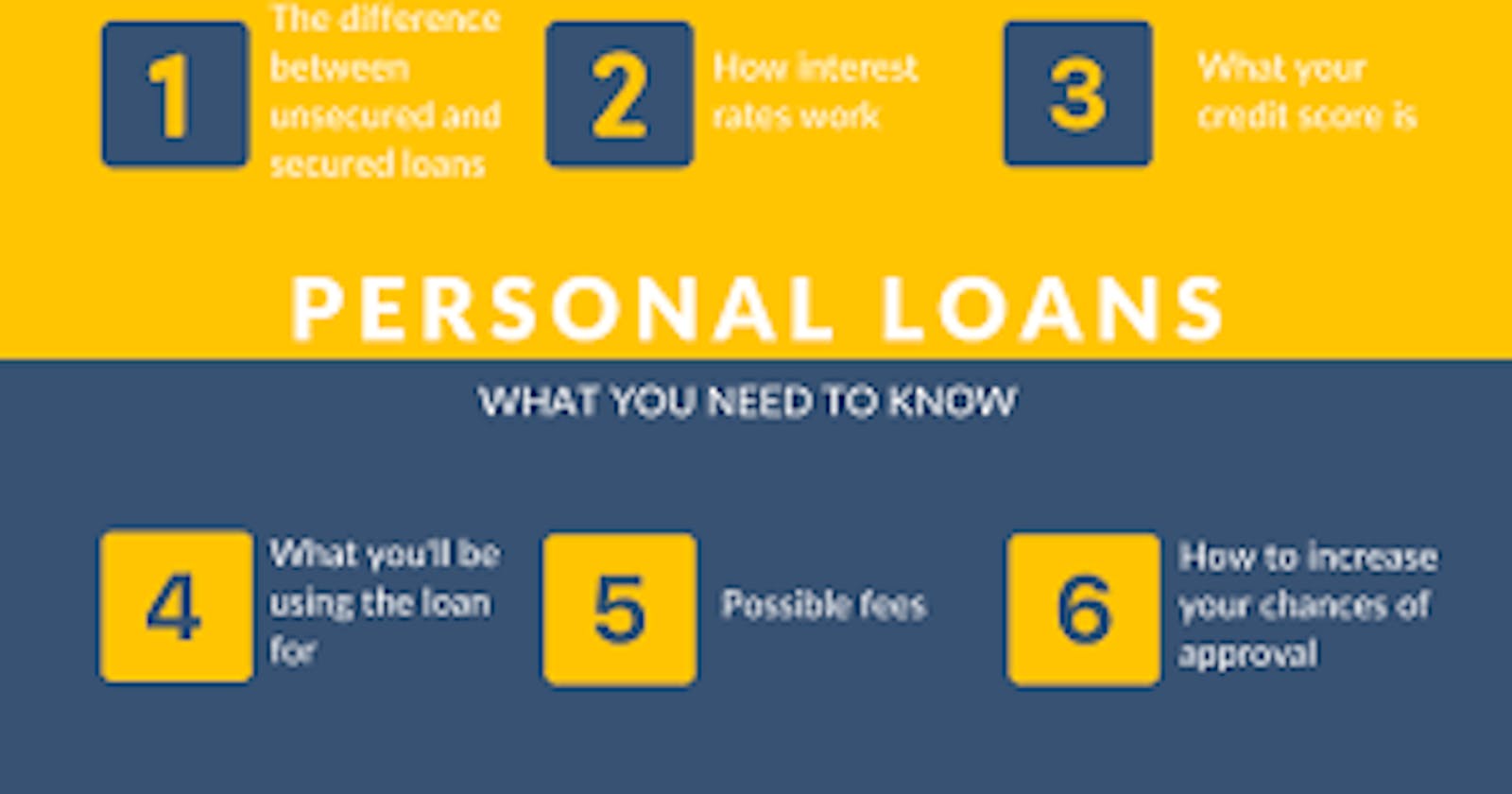Personal loans can be a versatile financial tool, offering individuals a way to fund various needs, from unexpected expenses to major life events. However, before diving into the world of personal loans, it's essential to understand the basics. In this comprehensive guide, we'll cover everything you need to know before borrowing a personal loan.
Understanding Personal Loans
What Are Personal Loans?
A personal loan is an unsecured loan, meaning it is not backed by collateral. Borrowers receive a lump sum upfront and repay it in fixed monthly installments over a specified period. These loans can be used for a wide range of purposes, such as debt consolidation, home improvement, or covering medical expenses.
How Do Personal Loans Work?
When you borrow a personal loan, you agree to repay the borrowed amount along with interest over the loan term. Interest rates can be fixed or variable, depending on the loan agreement. Fixed rates provide predictability in monthly payments, while variable rates may fluctuate based on market conditions.
The Application Process
Checking Your Eligibility
Before applying for a personal loan, it's crucial to check the eligibility criteria set by the lender. Factors such as credit score, income, employment history, and debt-to-income ratio often influence eligibility.
Documentation Required
Lenders typically require documentation to assess your financial stability. This may include proof of income, employment verification, and details about existing debts. Providing accurate and complete information enhances the chances of loan approval.
Credit Scores and Personal Loans
A good credit score significantly improves your chances of getting approved for a personal loan. Lenders use credit scores to evaluate your creditworthiness, so maintaining a positive credit history is key.
Choosing the Right Loan
Interest Rates and Terms
Compare interest rates and loan terms from various lenders to find the most favorable conditions for your financial situation. Consider whether a fixed or variable interest rate aligns better with your preferences and budget.
Fees and Charges
Be aware of any additional fees associated with the personal loan, such as origination fees or prepayment penalties. Understanding these charges ensures you have a clear picture of the total cost of borrowing.
Responsible Borrowing
Borrow Only What You Need
While it might be tempting to borrow more than necessary, it's advisable to only take out the amount needed. This helps minimize interest costs and ensures more manageable monthly payments.
Repayment Plans
Before signing the loan agreement, understand the repayment plan. A well-structured plan aligns with your budget and financial goals, making it easier to manage the loan responsibly.
Conclusion
In conclusion, personal loans can be valuable financial tools when used responsibly. Understanding the ins and outs of personal loans, from eligibility criteria to responsible borrowing practices, empowers individuals to make informed financial decisions.
5 Engaging FAQs
1. Can I get a personal loan with bad credit?
While it may be challenging, some lenders specialize in providing personal loans to individuals with less-than-perfect credit. However, expect higher interest rates and less favorable terms.
2. How long does it take to get approved for a personal loan?
The approval timeline varies among lenders. Some offer quick approvals, providing funds within a few days, while others may take longer. Prepare for potential delays by applying well in advance of when you need the funds.
3. What's the difference between a secured and unsecured personal loan?
A secured personal loan requires collateral, such as a car or savings account, while an unsecured personal loan does not. Secured loans may offer lower interest rates, but they pose a risk to the collateral if the borrower defaults.
4. Can I use a personal loan for a vacation?
Yes, personal loans can be used for a variety of purposes, including vacations. However, it's crucial to weigh the cost of interest against the enjoyment of the trip and consider alternative financing options.
5. Are there alternatives to personal loans?
Yes, alternatives to personal loans include credit cards, home equity loans, and lines of credit. Each option has its own advantages and disadvantages, so it's essential to compare them based on your specific needs and financial situation.
Source - https://www.fincover.com/

